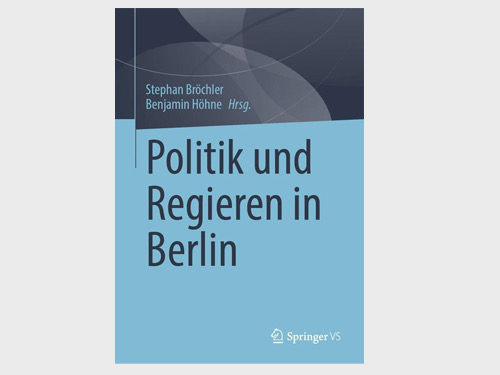
Does decision-making in parliamentary groups follow democratic standards? Oliver Kannenberg and Danny Schindler have investigated this question in an anthology on the Berlin House of Representatives.
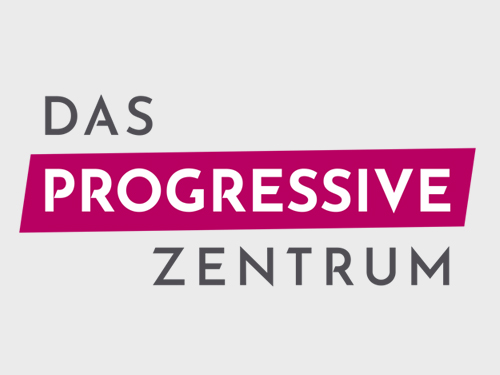
How resilient is liberal democracy? This question was the focus of a roundtable on democratic politics organised by the Bertelsmann Stiftung and the Progressive Centre. Danny Schindler spoke on the ability of parliaments to act.
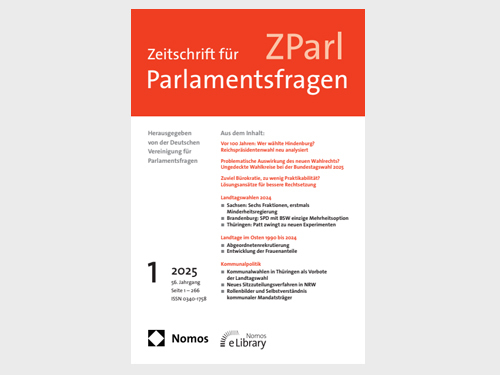
How do local councillors define their political role - between citizen dialogue, administrative logic and digital participation approaches? The article by Kevin W. Settles and Nadin Fromm et al. in ZParl offers empirically sound insights and discusses challenges and reform perspectives.

Lots instead of elections? The idea of drawing lots rather than electing decision-makers is not new - but it has been gaining attention in recent years. How exactly do citizens' assemblies work? What are their strengths - and their weaknesses? We discussed these and other questions in a double episode with Frank Decker from the University of Bonn and Florian Wiezcorek from Mehr Demokratie e.V. in order to approach these questions from both an academic and a civil society perspective.

In the second part of the double episode on citizens' assemblies, we look at the practical implementation and the civil society perspective. With Florian Wiezcorek from Mehr Demokratie e.V., we discuss the possibilities of the format and previous experiences with citizens' assemblies.

When filling ministerial posts within the party, attention is paid to a variety of points: Gender, regional origin or wing affiliation. Nevertheless, this does not stand in contrast to the necessary expertise, as Oliver Kannenberg explains in an interview with ARD Brisant.

Coalition collapse, new elections, Chancellor Merz. Danny Schindler spoke to US magazine The Nation about how the new coalition government came into office and the challenges it faces.
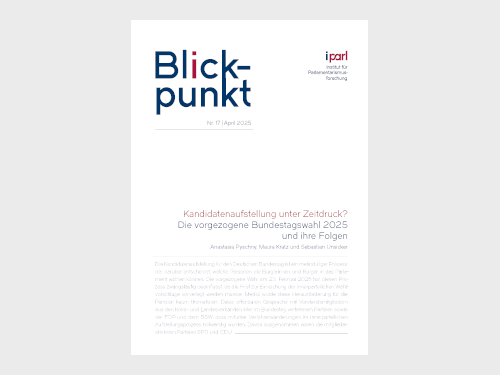
Due to the early election of the German Bundestag, intra-party candidate selection also needed to be held earlier than planned. As Anastasia Pyschny, Maura Kratz and Sebastian Unsicker point out in the 17th IParl-Blickpunkt, this had consequences for the process of nominating candidates. In almost all parties, procedural changes were necessary in the internal party nomination process.
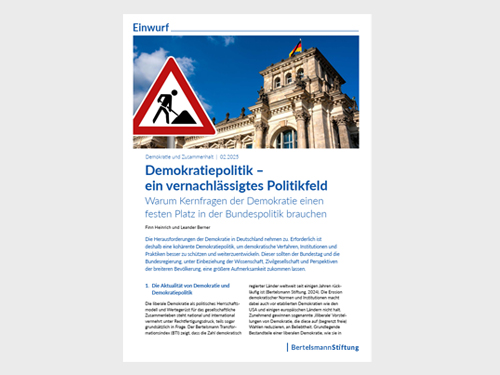
Is it time for a more ambitious democracy policy and, if so, what could it look like? This was the key question of the Bertelsmann Roundtable with representatives from politics, administration, civil society and academia. Danny Schindler represented the IParl.

Communication is both a key task and a complex challenge for political parties. Danny Schindler spoke to the ZDF programme "Berlin direkt" about the tension between election campaign rhetoric and finding compromises in coalition negotiations.
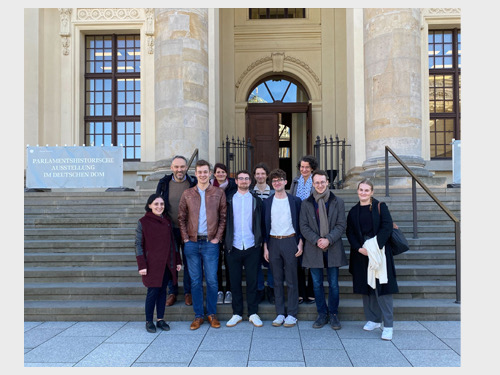
On 28 March, young researchers and practitioners were able to gain insights into the IParl's research projects and discuss them with us. In addition to the theoretical foundations of representation, parliamentary groups and parties, the focus was on the possibilities of their research and the presentation of empirical findings. Afterwards, there was a guided tour of the parliamentary history exhibition in the German Cathedral and a joint dinner not far from the Bundestag. We would like to thank all participants for their interest and the valuable dialogue.
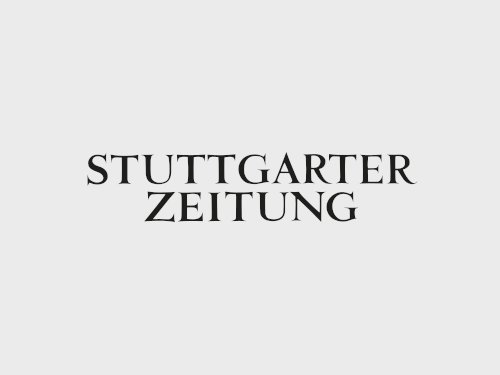
The AfD not has almost a quarter of seats in the new Bundestag. What impact will this have on the composition of parliamentary committees? Danny Schindler spoke about this in an interview with Stuttgarter Nachrichten.

For the Politikum podcast by WDR5 Danny Schindler explained why political leadership and the ability to compromise on a daily basis are needed for coalition talks. Extensive coalition agreements on the other hand are not necessarily needed.
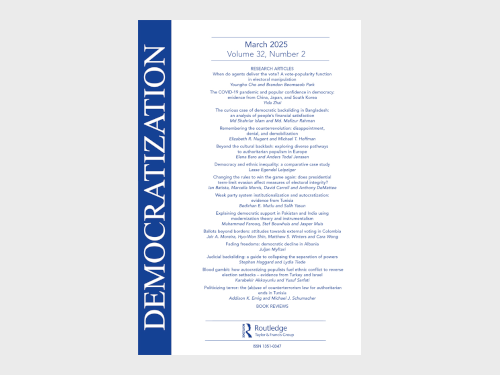
The recall of MPs during the election period, as permitted by the Recall of MPs Act in the UK, is seen by some as a democratic correction mechanism. However, it can also be used as an instrument to weaken the opposition, as Danny Schindler's case study on Zimbabwe shows.

As the second chamber, the German Bundesrat represents the interests of the federal states and has considerable influence on federal legislation. But how exactly does the interaction between the federal and state levels work - and what characterises the Bundesrat as a special second chamber? In this episode, Franziska Carstensen, research associate at IParl and visiting professor at HWR Berlin, and Albert Funk, journalist and long-time observer of the Bundesrat, discuss the historical development, institutional categorisation and political dynamics of the Bundesrat. The focus will be on the origins of the Bundesrat, its influence on the legislative process and the extent to which the Bundesrat should be seen as a power factor or as a mere mediator between the federal and state governments.

What will happen after the early general election and which changes to the party system are to be expected? Danny Schindler spoke about these questions with the morning programme of SWR Kultur.

Traditionally, governments in France can rely on stabl majorities in parliament. Since 2022, however, a minority government is in office. Damien Lecomte and Calixte Bloquet trace the institutional and political developments of the last 20 years to explain this new phenomenon. Although this new political situation has placed parliament more at the centre of politics, it has not contributed to a stronger consensus orientation in the Assemblée nationale.

The Bundestag elections on 23 February will be observed by an OSCE/ODIHR team of experts. In this context, discussions will also be held with experts from academia and civil society. Danny Schindler and Daniel Hellmann gave their assessments of the electoral reform, the scrutiny system and the general organisation of the election and discussed possible suggestions for improvement with the OSCE/ODIHR team of experts.
Sign up to receive updates, promotions, and sneak peaks of upcoming products. Plus 20% off your next order.